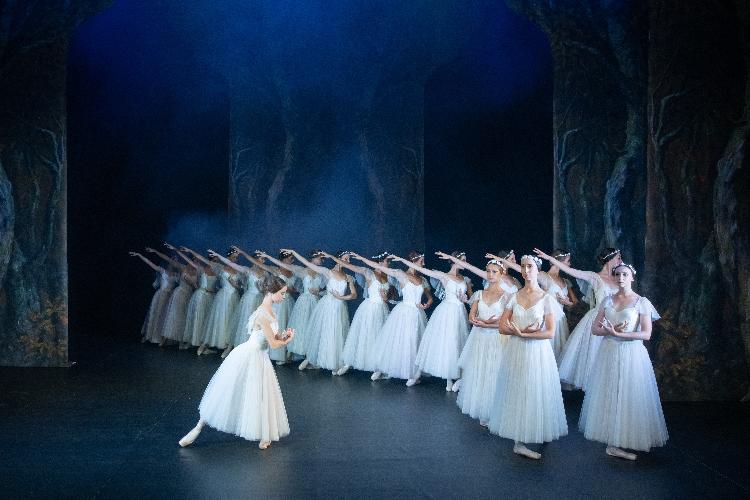To think that in 1841 (That’s 180 years ago!) Giselle was first staged, and her tragic tale surpassing 100 plus decades, has been told through various memorable adaptations. Although succeeding productions have most certainly been updated and reimagined over a century, Giselle’s story still haunts novice and die-hard ballet aficionados alike. This evocative and incredibly tragic story is undeniably one of the greatest romantic ballets of all time and proves that the Varna International Ballet company has delivered an exquisite portrayal of fine acting and effortless dancing in every possible way.
Giselle is classical ballet at its best with this usual tale of enduring love, revenge, betrayal and death at its core. These themes ring true in modern and classical ballets alike however more so in the world we live in today. The exploration of love and betrayal in the almost 2-hour production, transports us to another time and somewhat taunting dimension bearing witness to Giselle’s heart-breaking journey. The story in essence is Giselle’s wholeheartedly, one fraught with heartache in life and beyond the grave. However, with the immense sadness that we bear witness to on stage, there is wondrous and enchanting beauty found in each developing scene.
This so-called love story isn’t one that we are accustomed to. It has all the traditional ‘boy meets girl’ antics however ends in tragedy (not to put a damper on the storyline for those intending to watch Giselle for the first time!) We meet the Naive, peasant girl Giselle who falls madly in love with the so-called handsome peasant boy Loys. Little does she know is that her love interest is in fact Count Albrecht posing as a common villager who has already been summoned to marry official bride-to-be, Countess Bathilde. Giselle’s mother Berthe is desperate for her delicate daughter to marry the forester Hilarion however the heart is a tempting vessel and Giselle’s persevering love for Loys is practically doomed from the start. The usual dancing and frivolity between the villages returning from the grape harvest pursue and after Giselle finds out that Albrecht is not whom he says he is and is destined for another bride, she kills herself which is the culmination of act 1.
Act 2 opens beyond the grave in a moonlit forest where Giselle is joined by the Wilis, the spirits of young girls who have died before their wedding day. Their one mission is to trap and basically entrance any man they encounter by killing them. Hilarion, who visits Giselle’s unmarked grave is pursued by the Wilis and is danced to his death. Albrecht, almost falls into their entrapment however Giselle effortlessly tries to protect him and guides him to safety. As dawn breaks and daylight appears the Wilis power is destroyed, and Giselle is freed from their menacing grasp. Through Giselle’s love and enduring spirit from beyond the grave she not only saves Albrecht but also releases her soul from the Wilis’ power. Albrecht Heartbreakingly is left grieving and alone.
I’m essence Giselle is everything you need from a ballet. It’s tragic, haunting and beautiful not forgetting its tenderness and true artistry in the dance itself.
With a ravishing score by Adolphe Adam and dramatic dance sequences of Giselle and Albrecht, expressing their love and pain for one another, effortlessly portrayed by Katerina Petrova and Tsetso Ivanov respectively, This fantasy ballet is incredibly moving and an enjoyable treat for young and old. Special mention to the Corps de ballet and conductor Stefan Boyadzhiev who shepherded the company throughout the production.
Founded in 1947 and currently celebrating their 75th anniversary, the critically acclaimed Varna International Ballet comes to the UK for the very first time.
Catch Swan Lake on the 10th of Feb and The Nutcracker on the 11th of Feb at the New Wimbledon Theatre which closes their London run.
Review: David Simmons

